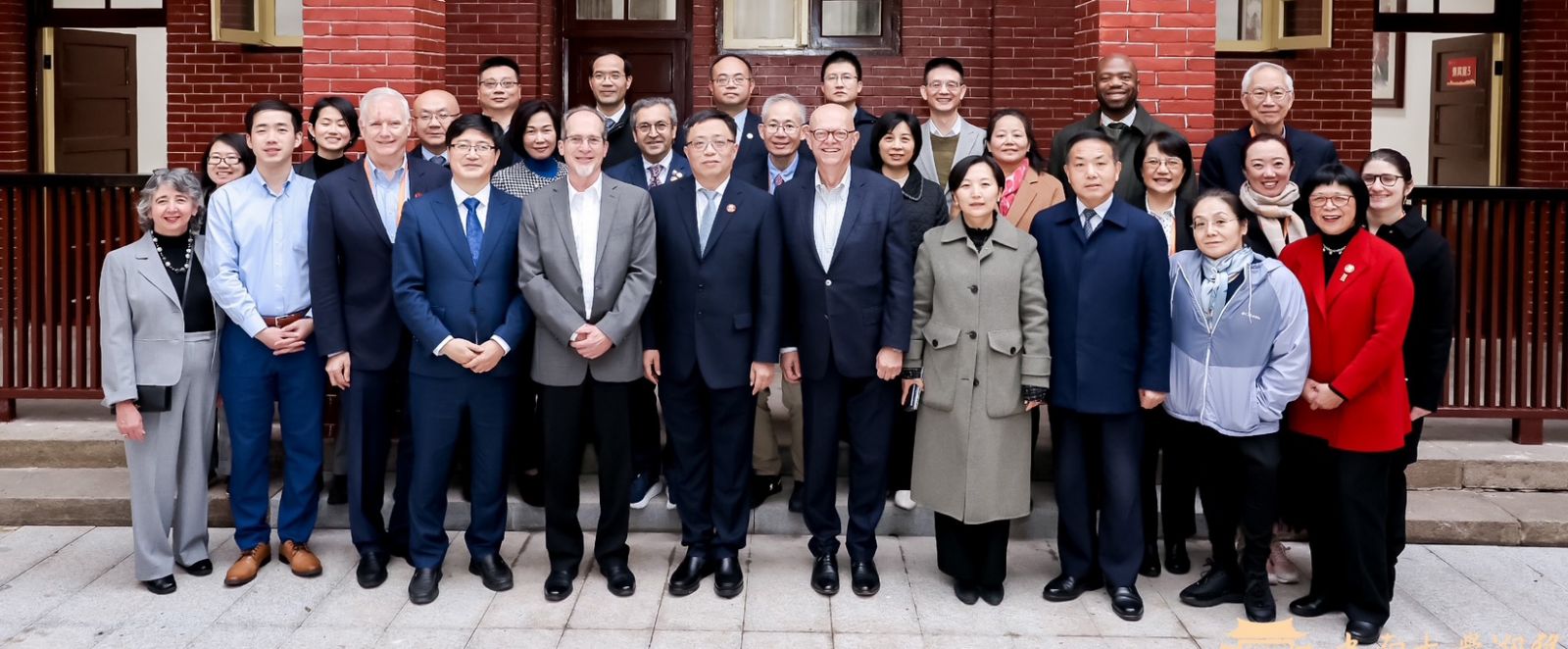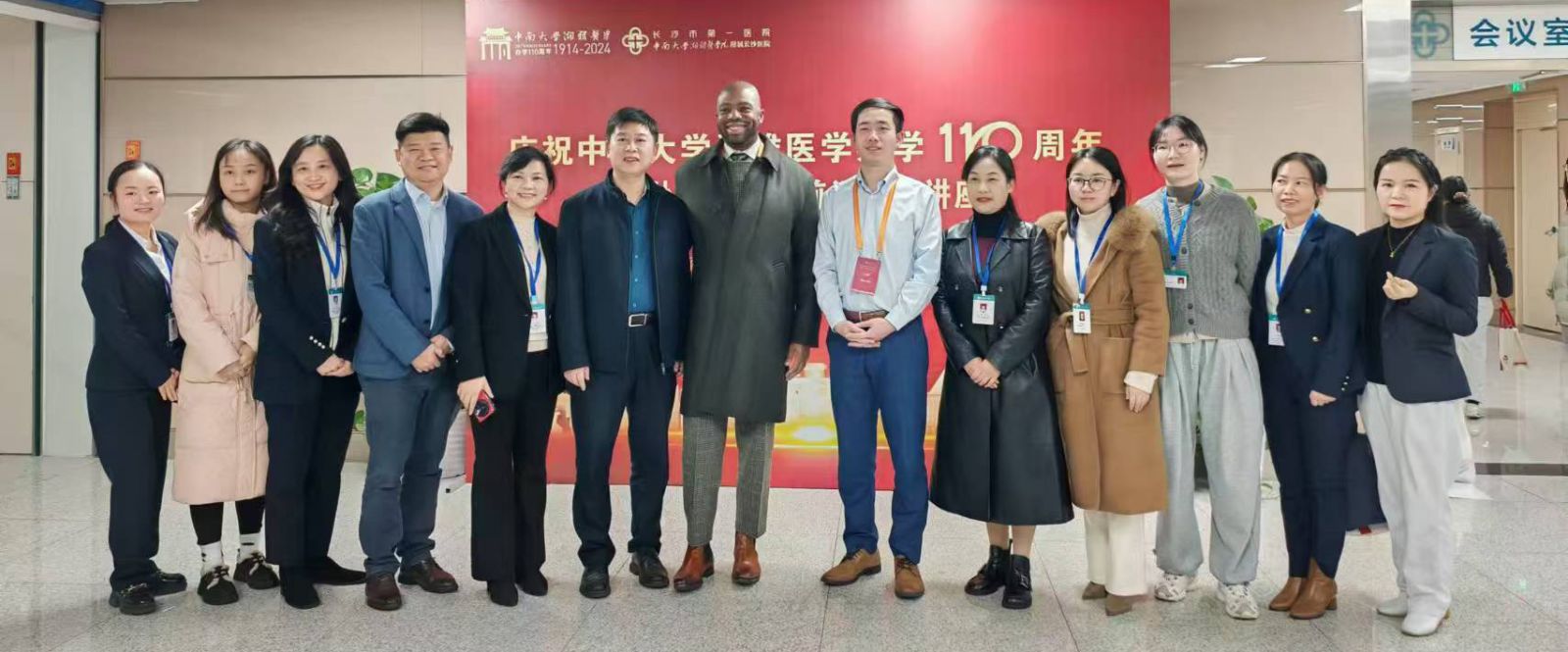
By Megan J. Allen MSN, APRN, FNP-C
In December 2024, Yale School of Nursing (YSN) faculty members Drs. Xiaomei Cong, LaRon Nelson, Zhao Ni, and Joanne DeSanto Iennaco traveled to Changsha, China, to celebrate the 110th anniversary of Xiangya Medical Education. Hosted by the Xiangya School of Nursing at Central South University (CSU), the event highlighted the school’s contributions to nursing and healthcare in China. Simultaneously, the Yale-China Association and Xiangya School of Nursing held the 23rd Annual Chia Family Health Fellowship Conference, themed “Behavior and Mental Health in Rural China” that also featured the YSN faculty.
Strengthening Global Health Collaboration
The Chia Conference provided a platform to address rural mental health challenges. Funded by the Jia Family Foundation, the event brought together global experts, including Yale faculty, to discuss evidence-based interventions and strategies to improve behavioral and mental health care. CSU Vice President Li Zhihong emphasized the role of international collaboration in advancing public health, while Xiangya School of Nursing Dean Honghong Wang acknowledged the impact of the Chia Family Health Fellowship Program.
YSN faculty played a key role in the conference. Dr. Zhao Ni presented on mobile health technologies, while Dr. Xiaomei Cong moderated a panel on behavioral and mental health interventions. Dr. Joanne DeSanto Iennaco participated in a panel alongside Dr. Jianfei Xie, a former Chia Fellow and now a nursing faculty member at CSU, as well as a disability rights activist and a community-based behavioral health provider.
Dr. Iennaco highlighted the challenges of delivering psychotherapy in rural China, where psychiatric mental health training and supervision are limited. “In China, there is not this level of training and supervision in psychiatric mental health nursing, so my comments related to the problems of lack of skilled psychiatric providers in rural areas or villages,” she explained. She noted that in the U.S., certification in evidence-based therapies like Cognitive Behavioral Therapy (CBT) and Motivational Interviewing (MI) requires extensive supervised practice. However, she suggested that certain therapies, such as Modified Behavioral Activation Therapy (MBAT), could be adapted for community-based providers. “MI and Problem-Solving Therapy may be other treatments that could be incorporated into protocols for community-based providers to use,” she added.

Expanding the Yale-CSU Partnership
Since 1998, the Chia Family Health Fellowship Program has supported 75 Chinese women’s health professionals in advanced studies at Yale, strengthening ties between Yale-China and Xiangya School of Nursing. Dr. Ni emphasized CSU’s commitment to this collaboration, calling it their most important international partnership. “The passion and desire of both their faculty and students to collaborate with Yale faculty and students are strong and impressive,” he noted.
Looking ahead, Dr. Ni hopes to establish an annual visiting program to enhance global health programs and research collaborations. He also stressed the importance of reciprocal exchanges as this is a part of YSN’s Office of Global Affairs & Planetary Health strategic plan: “CSU has sent many students and visiting scholars to Yale University, and we hope to facilitate more visits from Yale students to CSU as well.” These experiences, he said, will deepen cultural understanding and help Yale students develop a global perspective – essential for future leadership roles.
The anniversary and conference reinforced the power of international collaboration in healthcare education. YSN faculty’s participation demonstrated and aligned with Dean Azita Emami’s commitment to fostering knowledge exchange and innovation to address global health challenges.
